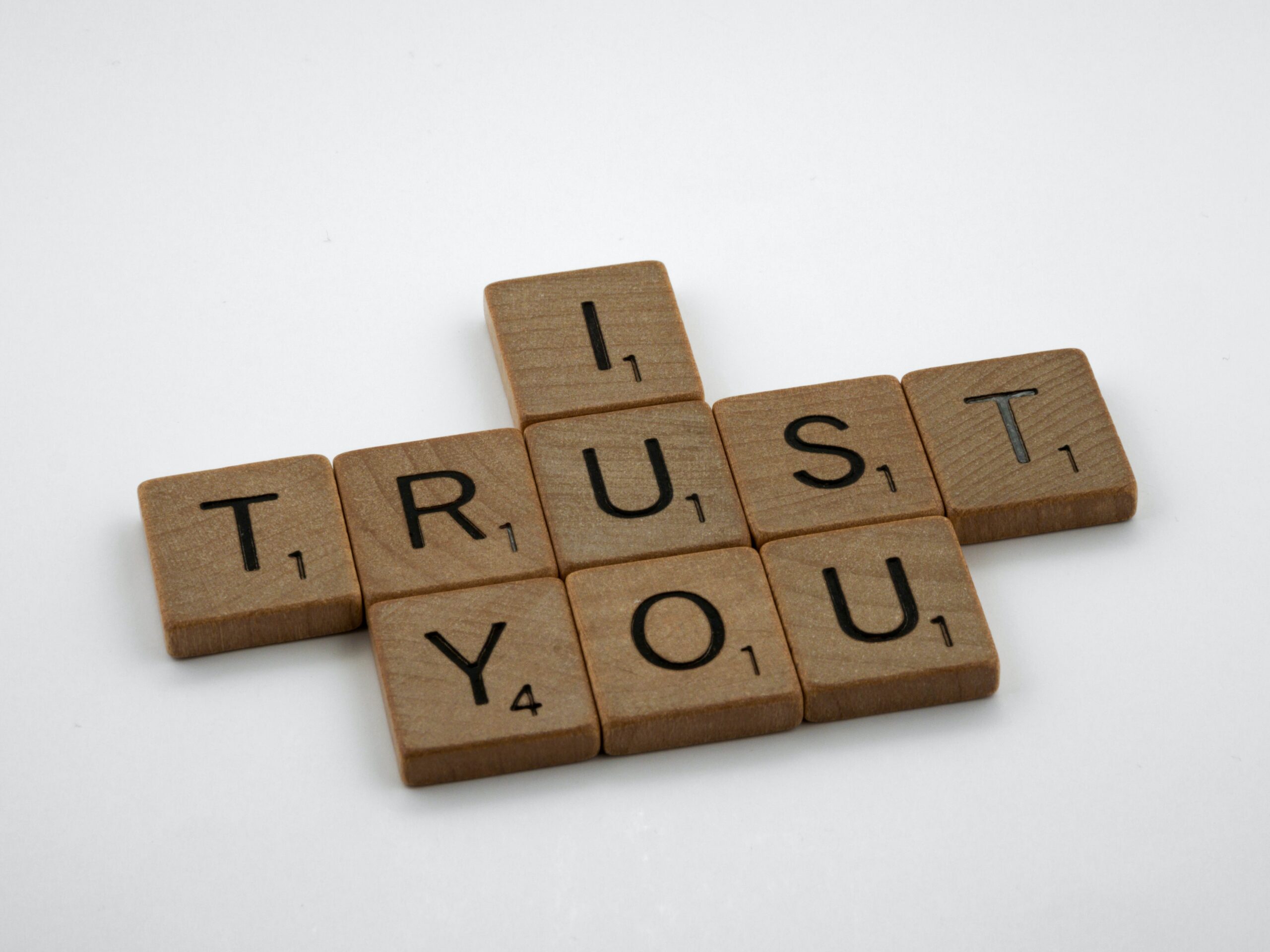
Difficult conversations, Relationships, Well Being
For my fellow conflict avoiders out there – here’s a powerful reframe
The last few months have been interesting ones, and much more challenging than usual. I’ve found myself in the middle of several conflicts and am still actively navigating my way through some of them. Like most human beings I don’t like conflict and have often looked for ways to avoid it in the past. Maybe I avoid having the difficult conversation or just avoid the person entirely. Navigating these murky conflicts has also been a struggle because I crave certainty. It’s often easier to handle a bad outcome if we know what the outcome is. The process of navigating through ambiguity, of uncertain outcomes, of not having closure can create a lot of angst. It’s been hard to sit with. But I’ve made a conscious choice to lean in rather than run and to get more comfortable with the things that are difficult to sit with. So sit I must. It’s been challenging too because I value relationships. I pride myself on showing up as a relationship-oriented person. I’ve worked hard to cultivate that over the course of my career – early on I got feedback that I tended to focus on my goals and objectives while ignoring that was important to others. I took the feedback seriously. I worked hard to bring more balance into my approach. To not be the kind of leader and colleague who only focused on task at the expense of relationships. To model servant leadership. To show up as a true collaborator with my peers. To put people first. Our inner critics will scare us out of conflict if we let them But no matter how much work I’ve done and no matter how many tools I have in my belt – all this outer turbulence has still managed to kick up inner turbulence in my mind. My inner saboteur has grown louder and louder as the conflict intensified. Maybe I haven’t worked hard enough on the feedback from early on? Maybe I’m bad at relationships after all? I should be better at difficult conversations at this point in my life. I should have learned all these skills by now. What kind of coach am I if I can’t practice what I preach? My saboteur has been using every trick in the book to get me to run away from the hard work and just throw in the towel. Conflict is scary after all. It’s funny how the mind works and how it plays tricks on us. For a long time, I think I viewed my worth as a human through the lens of my accomplishments. How much money did I earn this year? How many fortune 100 clients do I have? How many times have I had articles published? How many certifications do I have? These were the benchmarks by how I measured my success. And I say “were” very intentionally because I don’t think about these things so much anymore. I’ve learned to let go of many of these metrics as a
October 29, 2024
|
7.7 min read

Difficult conversations, Leadership, Relationships
The Beautiful Thing About Conflict
The last few weeks have been tumultuous ones, and I’ve been shying away from writing this blog, waiting for things to settle. It’s the space that often brings the insight. And it’s starting to emerge, where I can now come up for a little bit of air and reflect on the last few weeks. The last month or so has been a powerful opportunity for me to lean into conflict. It’s not my favorite thing to do. Many of us really struggle with conflict, it’s one of the top topics that comes up in coaching sessions with my clients, and I’ve been hit with it from all sides lately – on the family front, on the business front and even on the friendship front. I think at times we go through tumultuous periods, it’s part of the wonderful and annoying mystery of life – it’s an amazing reminder that we’re obviously not in control and life is full of ebbs and flows. I can feel a lot of things shifting in my life as I have grown as a coach, as a leader, as a wife, and the bottom line is that often the status quo behaviors that we have become accustomed to cease to work with new levels of awareness. Relationships may fall away as you outgrow them. Advocating for ourselves in different ways, asserting new boundaries or expectations might create tension as we work to negotiate new agreements. What is the conflict trying to teach you? The question I often ask myself in times of conflict is – What can I learn from this experience? How can I grow? Sometimes it’s super hard to see the silver lining on the conflict cloud, especially when we don’t get the outcome we were hoping for. Maybe a cherished friendship comes to an end. Maybe a business relationship comes to an end. There could be sadness, disappointment and grief on the other side of conflict. These emotions are scary, and we often try to avoid them. When I ponder these potential outcomes, maybe conflict is an opportunity to experience these darker emotions, to really feel them, and to learn to live with them. Maybe it’s an opportunity to go deeper into ourselves and recognize the pieces of us that need to heal. Maybe it’s an opportunity to learn how to communicate with the people we care about more effectively. Or all of the above. I’ll turn to the situation about my family. I’ve been navigating a tricky situation with several family members where an inheritance is concerned. Tensions have flared. Hidden agendas have been uncovered that have resulted in a lack of trust and prevented open and honest conversations. The conflict is often not about the surface issue The interesting thing about family is the presenting issue is often not what the conflict is really about. Still waters and root causes often run deep. We’re not talking about huge sums of money. We’re not talking about large tracts of land. There’s
September 4, 2024
|
6.3 min read

Emotional Intelligence, Relationships, Spirituality
The Beauty of Grace
I’ve been noticing a trend in popular culture lately as it pertains to relationships. Evidently, we live in a toxic world, full of narcissistic people who don’t deserve to have our friendship or our comradery as colleagues. We are often told by various self-help guru’s and other talking heads that we need to cut these people out of our lives. You know the kind of problem people I’m talking about. They’re the selfish, difficult ones who don’t respect boundaries. Who take and never give. And the most appropriate response is to ghost them, particularly if it’s a personal relationship. Ghosting a colleague or a boss at work is a bit tricker but many of us find ways to “work around” problem people or secure our escape in other ways, perhaps by changing departments or jobs. The problem is, it’s just not this simple. And there comes a point at which you can’t keep avoiding problem people, trust me I’ve tried. I’m not in any way advocating tolerating abuse, but there’s a difference between abuse and dislike. There’s a difference between abuse and valuing different things. We can put up wall after wall after wall, but the interesting thing about life is that it will keep sending you the same challenges over and over until you rise to the occasion and look more deeply inwards at what is really going on. Grace under pressure I’ve known my friend Morgan for years. She’s the amazing artist type, somewhat erratic, flies by the seat of her pants, creative and fun. I’m not, and that has been a point of contention over the years, especially as it relates to timeliness and honoring appointments. I expect her to agree to a time to meet and be there at that time. It doesn’t always happen. And so the tension had grown and grown in our relationship – I was becoming increasingly resentful of her tardiness, and I made it personal. That she didn’t respect me, that she didn’t care, that she didn’t give a damn. We had fought about this in the past and I just didn’t have the energy to re-engage, plus, she’s a better fighter than I am. I was ready to walk away from the relationship. So the other day I showed up for a walk at 8 am, the agreed time, and I rang the door and I waited. No Morgan. I called. No answer. I waited about 5 minutes and then I left. I went and got gas. I was looking at my phone, deciding which yoga class to go to instead, and I saw her name pop up. Normally I would have avoided the call – she lost the opportunity to walk with me, she can bear the consequences, and this friendship really is on its way out. So be it. Instead, I took the call and told her I’d come back to walk after I got the gas. Why did I do it? I’m still not sure. But I
February 8, 2024
|
6.8 min read

Career Coaching, Leadership, Relationships
Simple strategies to make a recruiter your best friend
This week I attended an incredible talk from recruiter Cheryl Bedard, who shared her thoughts on engaging properly with recruiters. One of the things that struck me as particularly important is we often only think about contacting a recruiter when we are in-between jobs or thinking of making a move. This is a very shortsighted strategy – active management of your career includes cultivating your connections with recruiters over time, along with the rest of your network, so that you have the support you need when you need it. In addition to this top tip, here are some other thoughts on how to make a recruiter your best friend: Be approachable and respond to emails and calls This one struck me as a surprise, as doesn’t everyone have a current email on their LinkedIn account? Evidently not. Make sure your profile is current and correct and use an email that you actually monitor and will respond to. If you’re actively looking for a job, answer the phone. This one may take a bit of a mind shift change as we’re programmed these days to let everything go straight to voicemail. But if I’m a busy recruiter, instead of leaving a message, I may just hang up and call the next candidate on my list. And Cheryl pointed out a very interesting piece of info – that coveted call from the recruiter might be tagged as spam on your phone. The only way to know for sure is to take the call and see. You can always hang up if it’s spam. Lastly, listen to your voicemails and make sure your mailbox is not full, with an aim to return messages within 24 hours. You should call them back and not text and definitely leave a voicemail if they don’t answer. Know what you want and why I often speak about this ad nauseam with career coaching clients. If there are 5 similar resumes, why would the company pick you? You need to have an answer to this question. And just in case you were wondering, “I’m willing to do anything” is not a good response. Cheryl’s perspective echoed mine, that the talent market does not respond well to generalists. You need to be a specialist in something, clearly understand the value you bring and be able to articulate it confidently. To that point there are 5 ways to speak to value – increased revenue, increased profitability, decreased cost, avoided cost, saved time. Think about the question – “What do you do to make your bosses life easier?” if you’re struggling to come up with an answer to this one. And even if during the interview process they don’t ask the question, “Why should we hire you?” you need to close with this as part of your summary and make sure they know why they should hire you. Share, Share and Share A brilliant way to cultivate relationships with recruiters is to be a source of information for them and share
November 11, 2023
|
4.1 min read

Leadership, Mindfulness, Relationships
How Trustworthy is Your Leadership?
In a class on leadership I was facilitating last week, we ended up talking a lot about trust. A worthwhile endeavor for sure. I recall years ago when I read Stephen Covey’s book, The Speed of Trust, which highlighted how building an effective foundation of trust enables work to happen much more quickly, efficiently and effortlessly than it ever would if trust was lacking. A low trust environment can lead to burnout When we think about the relationships in our life – personal or professional, we often evaluate them based on whether we think we can trust the person. “I don’t trust him as far as I can throw him.” This is especially important if you’ve ever worked for a leader you didn’t think you could trust. My virtual office is often full of career and leadership coaching clients experiencing burn out due to prolonged exposure to an untrustworthy leader or team environment. And it takes me back to times in my career where I felt like I was walking on pins and needles all the time, lest I upset the apple cart. It takes a toll. Especially on our bodies, as we often find ourselves in a state of hyper alert all of the time. The fight or flight response is constantly triggered, stress hormones like cortisol are constantly pulsing through our bodies, and at some point we finally crash and burn. A simple equation for building trust Folks often pontificate about the importance of building trust, but few get into the nitty gritty of how you do it. And it’s more than just being knowledgeable in a certain skill or topic area. Competency and credibility are important, but it isn’t the whole equation. And there is an equation for trust by the way. I ran across this simple trust equation years ago, and here it is: C + R + I _______ S.O. The trust equation explained C stands for Credibility. Or in other words, “I can trust what she says about x…”. Do you know your stuff? Have you built the technical skills and competencies for the task at hand? Do you have the necessary leadership skills and competencies to guide your team, things like giving feedback? Setting a vision? Delegation? Holding others accountable? R stands for Reliability. Or in other words, “I can trust she will follow through.” What’s your level of integrity when it comes to follow through currently? Do you make promises you have no intention of keeping? Or perhaps you have every intention but you find yourself saying yes to every request that crosses your path. You overpromise and underdeliver. Good intentions are wonderful but will ultimately snooker you if you can’t come up with the follow through. I stands for Intimacy. Or in other words, “I can trust I can come to them with my concerns and problems.” To what extent are you an approachable leader? Do others seek you out for your counsel and your advice? How effective are you at
June 20, 2023
|
5.4 min read

Authenticity, Communication, Difficult conversations, Relationships
Straight Talk: Speak the Truth with Love
This week I’ve been teaching a course on straight talk. I often refer to this skill as “Speaking the Truth with Love.” The crux of getting this right depends on three important aspects. There are three elements to straight talk: Caring personally (compassion) – Caring personally about the individual who is on the receiving end of this conversation and demonstrating this care with your words in the conversation. Sharing your perspective and/or challenging directly – Or in other words, being clear about the issue that needs to be communicated and not beating around the proverbial bush. Inviting others to do the same – Creating the space to have a two-way conversation rather than merely talk at someone. Any straight talk conversation is a great opportunity for two-way dialogue and not merely a “dump and run.” Don’t Bury the Lead You’d be surprised how often we do the opposite. When it comes to challenging directly, I notice one thing in particular. I often sit in practice runs where participants are role playing a difficult conversation they need to have. I’ve seen people do a million times something I call “burying the lead.” At the end of the conversation, I ask the initiator what the issue was they wanted to communicate. The person on the receiving end of the conversation often had a totally different impression of what the conversation was about. The gravity of the issue had not been conveyed clearly or accurately. This happens all the time, and people walk away with completely different perceptions of a conversation or an issue. No wonder there’s so much conflict in our personal and professional lives! Remember that honesty without compassion is brutality But the caring personally aspect is just as important as challenging directly. It’s crucial to remember that honesty without compassion can be brutality. E.g. “I think your idea is stupid.” I’m reminded of an old friend and colleague that I used to spend a lot of time with. She prided herself on her ability to give straight talk. She had mastered the art of being direct. On that front there was no one better I will admit. The problem is her words were often not couched in compassion. Over time it took a toll on my ability to relate to her, and eventually after I’d been stung enough times, I abandoned the relationship. It just wasn’t worth it. So why don’t we engage in straight talk? Or why don’t we do it well when we try? Mindset is Everything Mindset plays a huge role when it comes to this skill. Do any of these sound familiar? It means being unkind. I must act professionally regardless of the cost. I can’t upset people. If you don’t have anything nice to say, don’t say anything at all. I must tell the truth at all costs. Silence is golden. I can’t challenge someone senior to me. Which of these beliefs are true for you? And how are they getting in the way of
July 13, 2022
|
3.1 min read
Relationships
Shelley Pernot, otherwise known as the Irreverent Guru of Mindfulness, muses on life, leadership and everything in between. Your one stop shop for career tips, leadership tips and daily inspiration!

It was a privilege to work with Shelley as my leadership coach! The process was structured and yet flexible enough to meet needs as they arose. Shelley helped me to grow, learn more about myself, and to really achieve what I set out to accomplish. We worked on planning, navigating a promotion successfully, and so much more! I experienced many successes as a result of working with Shelley, she has great resources, knowledge, and really helps with setting the foundation to this coaching work. She won’t let you down!
Stacy Campos
Regional Coordinator
Having the opportunity to have Shelley as my Leadership Coach could not have come at a better time in my career. I was recently promoted to CFO and was new to the Senior Management Team. Shelley helped me navigate joining the team as well as helped me to determine who I wanted to be as a leader. The Leadership Circle Profile helped our team to discover our blinds spots and to be able to understand each other better. Working with Shelley not only has affected my professional life in a positive way, but also my personal life. She helped me take leaps and has given me the resources to continue this journey of self-improvement. If you’re looking to find more about yourself and how you can be the best version of yourself, I highly recommend working with Shelley.
Kristen Spedale
CFO
I have been working with Shelley for the past 2 years on my leadership development journey. What I thought would be a straight line, I soon learned with Shelley’s guidance, was a winding path with several ups and downs along the way. Shelley supported me as I took a deep dive into my professional and personal history and learned how it affects my approach and my perceptions. She helped me to slow down and recognize certain behaviors and understand that I can pivot in the moment or try again next time. Ultimately, my work with Shelley turned out to be so much more than what I expected. Her approach to coaching was exactly what I needed.
Nicole Naassan
Senior Vice President, Consulting
I’ve learned more about leadership in the past six months working with Shelley than I have in my 10+ year career. She is an incredible coach with many tools in her toolbox. The guidance and mentorship I’ve received from Shelley has been life-changing. She will challenge your limiting beliefs and inspire new ways of thinking.
Margaret Soltis
Creative Director
I highly recommend Shelley if you need a coach, thought partner, and guide as you consider the next steps in your career. She provides practical tools and advice to help launch your career exploration, but most importantly, she is an expert at helping you cut through the noise of your limiting beliefs. At the end of our time together, I had a much clearer vision of what I wanted in my life and a plan to make it happen. My only regret is that I didn’t find her sooner!
Elizabeth Magnus
My career coaching sessions with Shelley have brought me back to living. It’s been contagious, spreading throughout my personal and professional life. I now have the building blocks I need to continue setting healthy boundaries, the freedom to show up as my authentic self, and an adaption of a growth mindset that has allowed me to make bold decisions and try new things. I’ve discovered that there’s always another way and how to eradicate barriers that lead to tunnel vision. These sessions with Shelley have been a great gift and have given me the momentum I need to continue the journey to be my best self.
Teasha Houston
Art Director
It is amazing to think where I was only 10 months ago when I first started working with Shelley and where I am now. Not only professionally but mentally and emotionally. Shelley helped me navigate out of an unhealthy work environment by challenging me and asking me those tough questions we never seem to ask ourselves. What are the values of a true leader? How do those values align with my own? Shelley challenging me and guiding me through some of those tough questions is what led to my epiphany and me having the courage and confidence to leave an environment that threatened my well-being. She taught me how to become more self-aware and self-compassionate. Reminded me to be kind even when the world would understand if I did otherwise. And the biggest one for me, shutting down that crazy inner voice (we all have it!) and replacing it with being present. Shelley has armed me with tools that I will carry with me for a lifetime. Tools that will help me to continue to grow and learn. Life can be hard but working with someone like Shelley does make it easier. She will help you navigate the good and the bad and you’ll learn so much about yourself in the process.
Michele Feria
Director of Marketing
First of all I would like to say that I would recommend Shelley to anyone needing career guidance. As my counselor Shelley helped me transition my career from bartending to Tech Sales which was a difficult and scary transition for me. From the start Shelley was fantastic. Initially I had no idea of which direction I wanted my career to go, I just knew I wanted it to go somewhere else. Shelley was so kind and patient as she helped me figure this out, and gave me a step by step guide on how to explore my options and make an educated decision. She also helped me assess my skill set which played a large part in directing my energy. I landed a great job within days of my final session with Shelley, and now I’m month 3 I am absolutely loving it and doing very well. It was the perfect job for me and Shelley was the one that got me there. Working with Shelley was one of the best decisions I have ever made, she literally changed my life and I am so much happier for it.
Russell Boxer
Account Executive
